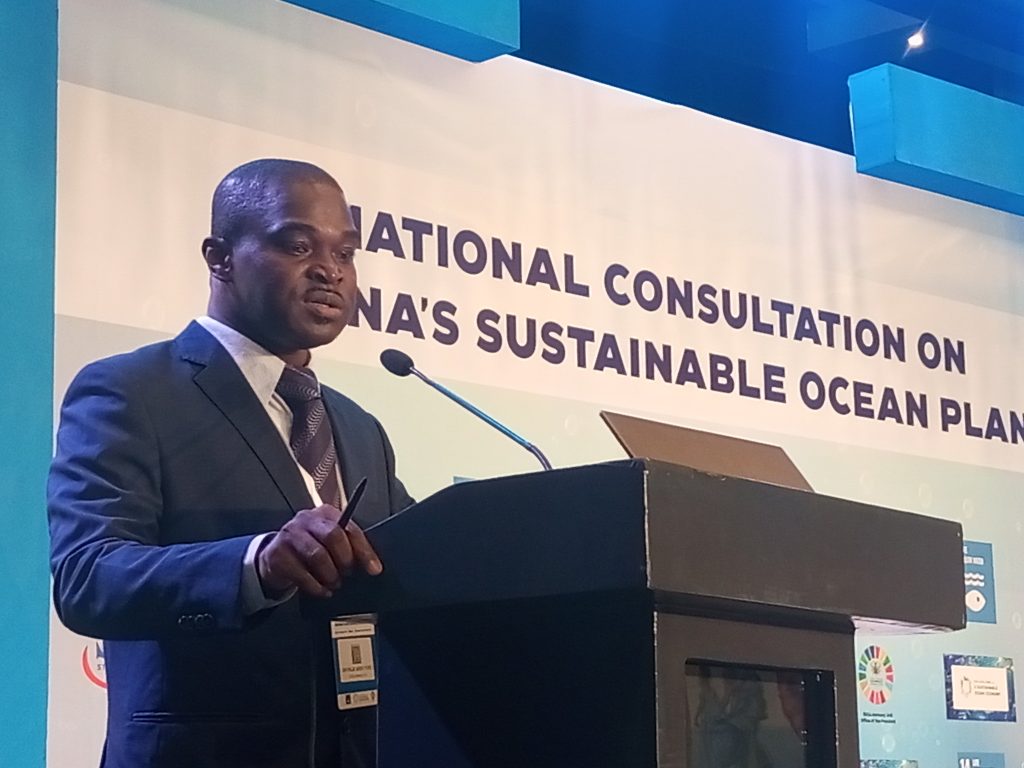By Iddi Yire
Accra, Sept 11, GNA – Dr Felix Addo-Yobo, the Deputy Director, Sustainable Development Goals (SDGs) Advisory Unit, Office of the President, has called for the protection of the world’s oceans from further pollution and degradation.
For humanity’s own survival, it was absolutely important that humans acted collectively to enhance their relationship with the ocean to ensure the sustainability of oceanic resources.
Dr Addo-Yobo, also the Focal Person for Ghana’s Sustainable Ocean Plan (SOP), made the appeal at the opening of a two-day National Consultation Meeting on the SOP in Accra.
The National Development Planning Commission (NDPC), in collaboration with the SDGs Advisory Unit of the Office of the President, has initiated moves to develop the SOP for the country.
The SOP aims to guide public and private sector decision-makers on how to sustainably manage a nation’s ocean area under national jurisdiction to advance long-term economic and social development.
As a Member of the High-Level Panel for a Sustainable Ocean Economy, Ghana has committed to sustainably manage 100 per cent of the ocean area under its national jurisdiction by 2025.
The National Consultation Meeting on the SOP, being organised by the SDGs Advisory Unit, in collaboration with the NDPC, seeks to create awareness on the SOP and its processes, and to provide a space for peer exchange and interaction among national stakeholders.
Dr Addo-Yobo said the oceans, which made up to 70 per cent of the planet, were vital for all lifeforms on earth as they regulate climate and weather, generate oxygen, provide food and livelihoods for billions of people, and drive the global economy through transport and trade.
“The oceans are also a source of solutions to many of the development challenges we face including climate change, poverty, and food security,” he stated.
“Unfortunately, the oceans face enormous challenges – pollution, ocean acidification, rising surface temperature and over exploitation – all of which are as a result of human activities.”
He said Ghana, with a 550km coastline and exclusive economic zone of 218 sq km, was endowed with rich coastal and marine resources, which had the potential to boost socio-economic transformation.
“Unfortunately, we have for a long time, literally turned are back to the sea, and focused most of our development endeavours on land,” he said.

“We have turned the sea into a “dumping ground” with marine litter, and more recently, heavily polluted rivers discharging into the sea, being major challenges.”
Dr Addo-Yobo said the livelihoods of millions of the population who depended on the ocean were at risk, while many more and several critical infrastructures remained vulnerable to rising sea level and tidal waves.
He noted that Ghana had embarked on a process of preparing a SOP to address the many challenges that the ocean faced and to optimize the benefits from the various uses of the ocean resources while balancing the economic, social and environmental imperatives.
Prof Kwasi Appeaning Addo, SOP Technical Advisor, said the Sustainable Ocean Plan could drive the economy and create stable jobs.
Madam Ingrid Mollestad, Ambassador of Norway to Ghana, during a panel discussion, said her country was proud to associate with Ghana with regard to the issue of sustainable ocean management.
Nana Joojo Solomon, of the National Fisheries Association of Ghana, appealed to the Government to ensure that fisherfolks were consulted whenever they were formulating policies concerning the oceans
GNA